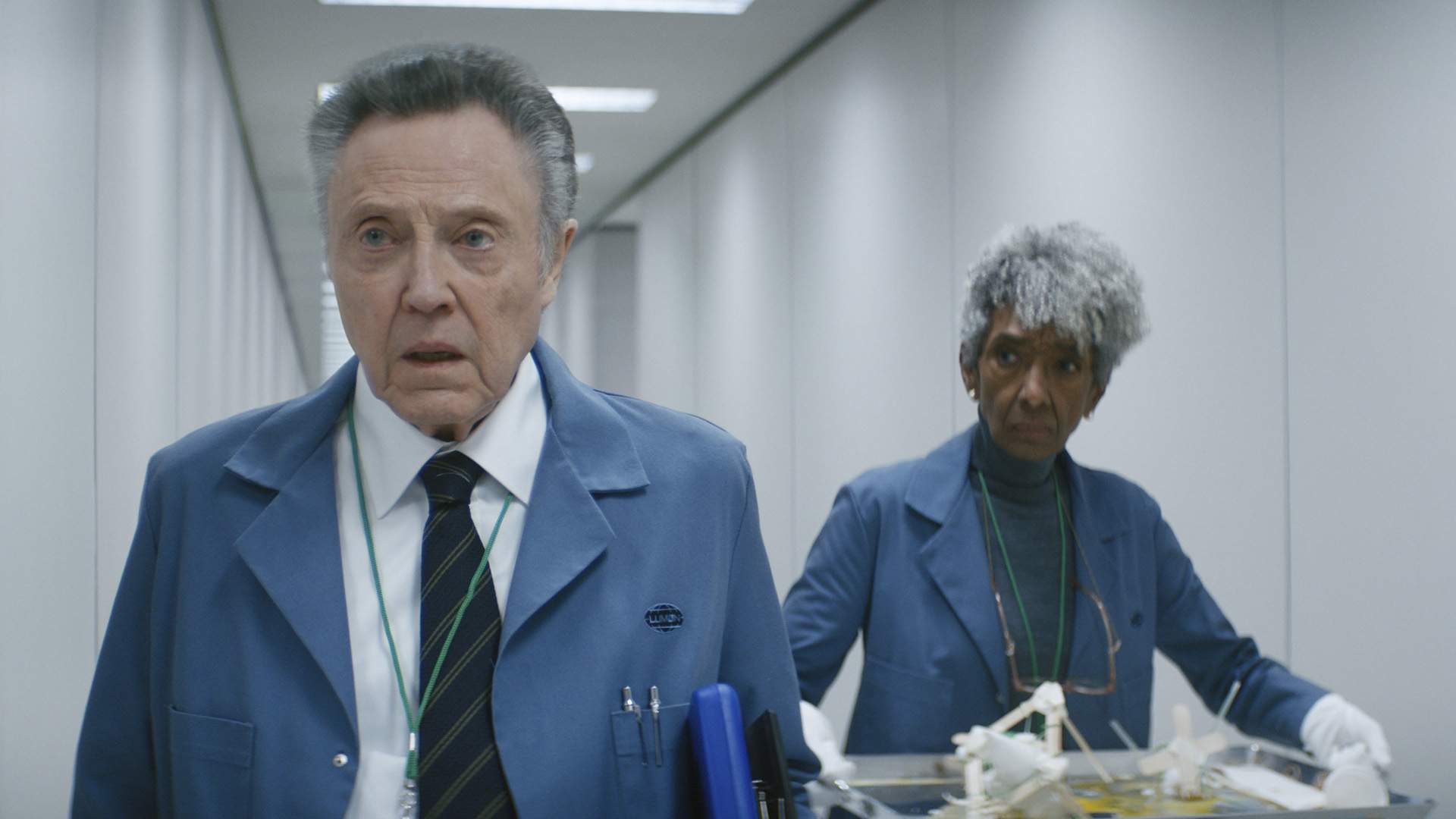How Playing with Innies and Outies Added a Rare Angle to an Icon's Career Seven Decades In: Christopher Walken Talks 'Severance'
If you think about this Oscar-winner's past roles, viral 'More Cowbell' fame and 'Weapon of Choice' dancing when you watch him as Burt Goodman, however, he understands.
It started with a twist: Severance, that is, as the Apple TV+ hit serves up one helluva take on work-life balance. In the streaming sci-fi mind-bender, employees at Lumon Industries — such as Mark S (Adam Scott, The Monkey), Helly R (Britt Lower, Darkest Miriam), Dylan G (Zach Cherry, Fallout), Irving B (John Turturro, The Room Next Door) and Burt G (Christopher Walken, Dune: Part Two) — seemingly live the clocking-off dream, although it turns out to be a nightmare. They have no choice but to leave their job at the nine-to-five grind each day, because they're physically incapable of thinking about it at home. Each has signed up for the show's titular procedure, where their personality and memory is split between their professional and personal spheres. Innies, as the series dubs them, navigate the corporate labyrinth with no awareness of what exists elsewhere. Outies, aka workers come quittin' time, have zero knowledge of what they get up to for a paycheque.
The best new TV show of 2022, already proving one of the best returning television series of 2025 thanks to its stellar second season and a key reason that Apple TV+'s catalogue is among streaming's finest, Severance offers plenty more twists beyond its premise. One of them is right there in its core casting. The hair, the voice, the gaze: to see Walken on-screen — and to hear him echoing from it — is to experience all three, as remains the case here, but he's also in rare territory. It's "a different kind of part for me to play, the romantic interest, especially at my age", the acting icon and octogenarian tells Concrete Playground. "Also the fact that he's a decent, good person. I don't play a lot of those."
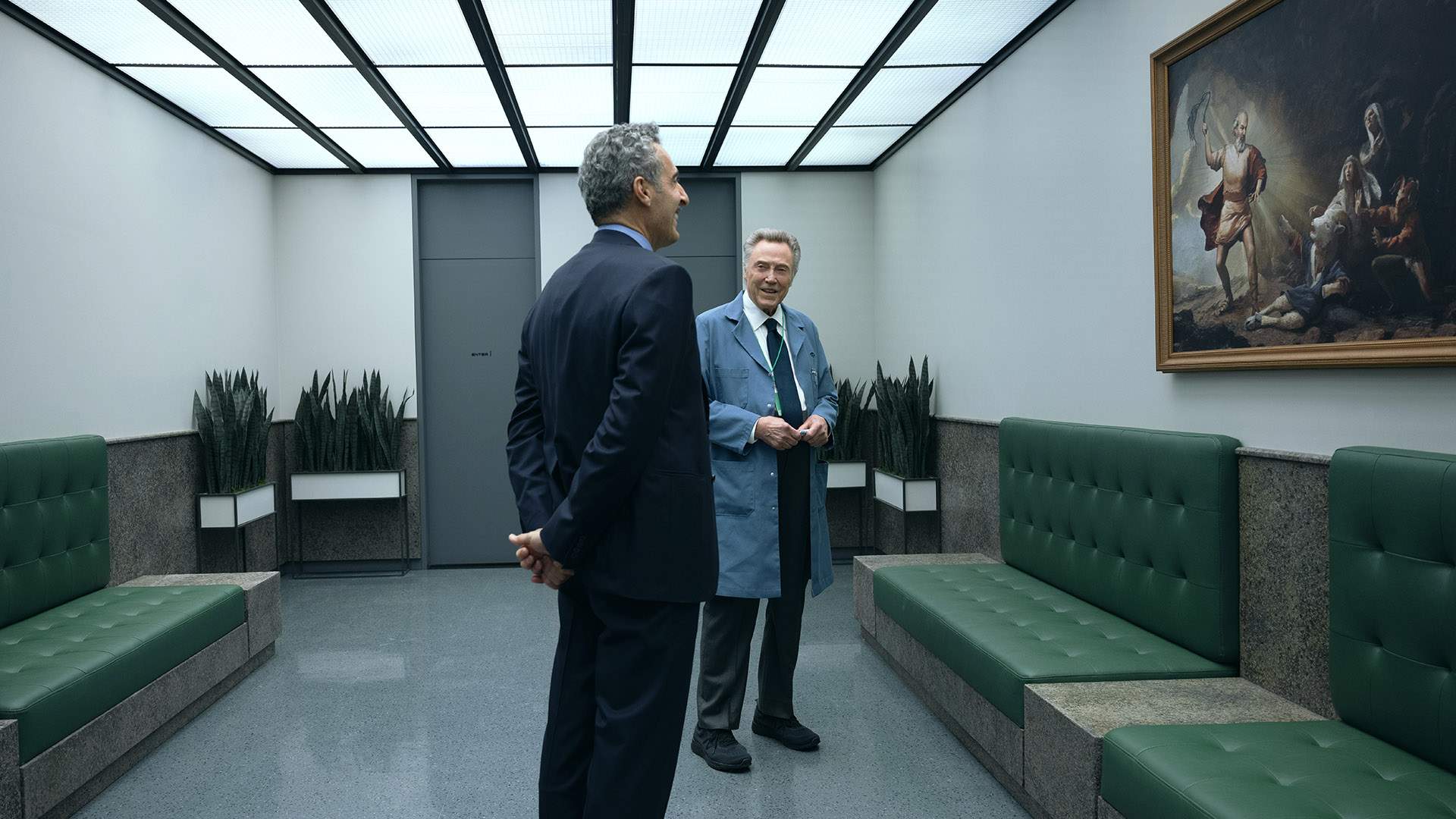
Walken has rarely been out of the camera's gaze or away from the stage since he was a child. His first theatre credit came when he was just nine, followed by his debut TV appearance at ten. His famed way with monologues, a hallmark of his filmmography, springs from "a lot of big parts in Shakespeare", he notes. He has an Oscar for The Deer Hunter, a BAFTA for Catch Me If You Can and two Emmy nominations, one for the first season of Severance and the other three decades earlier for television movie Sarah, Plain and Tall. Busting out psychic powers in The Dead Zone, playing a Bond baddie in A View to a Kill, getting nefarious in Batman Returns, spouting Quentin Tarantino-penned dialogue in True Romance and Pulp Fiction, Saturday Night Live's viral 'More Cowbell' sketch, putting his dance training to great use for Fatboy Slim in unforgettable music video for 'Weapon of Choice', several acting parts in Turturro-directed films such as The Big Lebowski sequel spinoff The Jesus Rolls, his other excellent recent TV turn as an ex-conman in British dramedy The Outlaws: they're just a handful of his fellow standout parts.
Severance's Burt G — Burt Goodman in his outie guise — is a wonderful showcase of a supporting role for Walken. Inside Lumon's fluorescent-lit walls, romance blossoms as the head of the company's Optics and Design department and Macrodata Refinement division employee Irving are drawn to each other, no matter how their employer's workplace setup attempts to place obstacles in their way. Walken's performance is tender, heartfelt and caring. Watching him light up with Turturro as their characters realise and process their feelings, and also dive into the idea that perhaps love transcends everything including having your brain severed, is one of the great joys of the series. When Irving is distraught and adrift without Burt after the latter's retirement, then driven to find his outie with his own, viewers feel that loss as well, so strong is Walken's imprint. It might be a part with a clear difference from most to his name, but he's as mesmerising as ever.
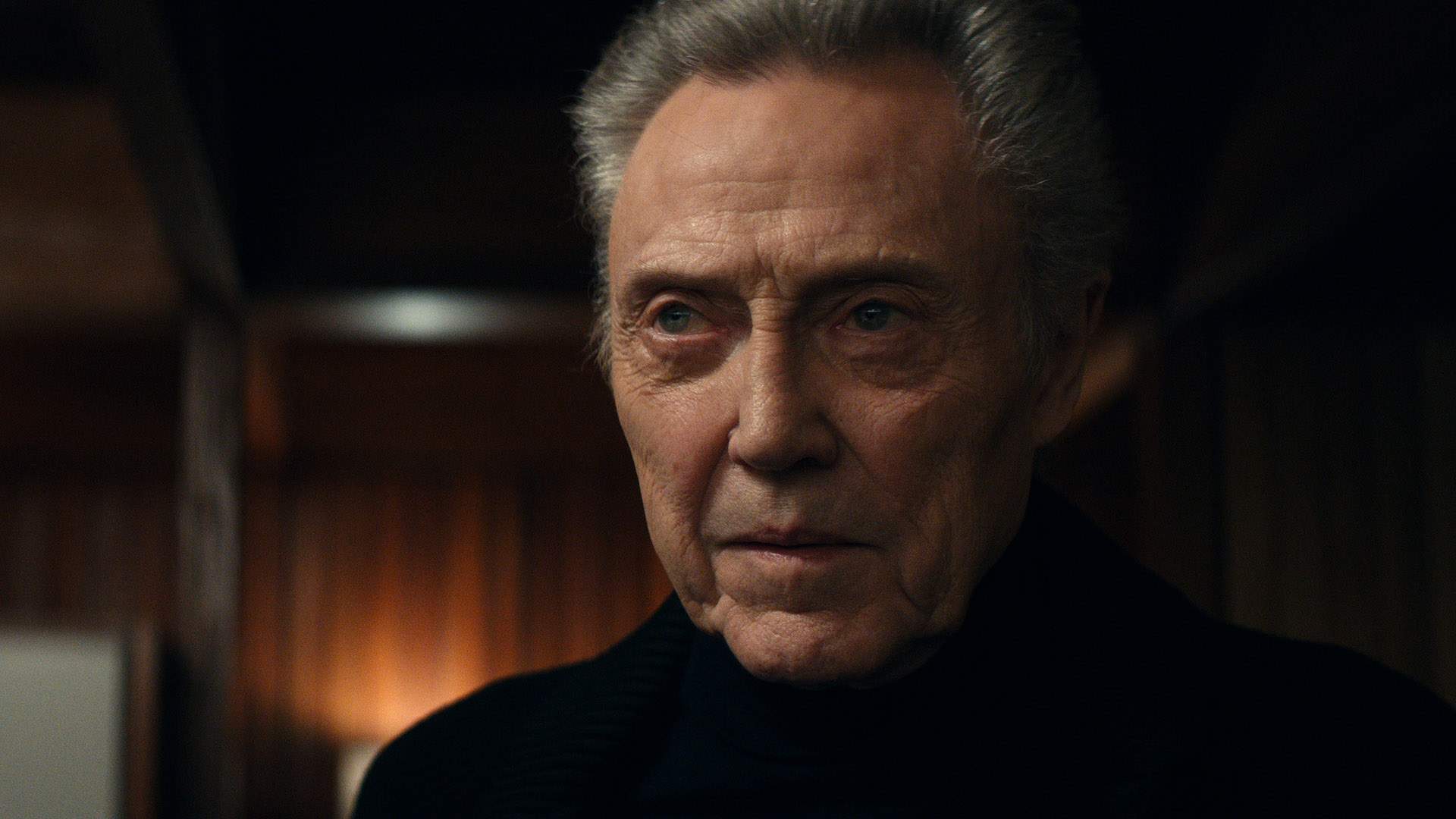
History isn't irrelevant to Walken's Severance portrayal, though. His performance isn't just glorious because it allows him to step into shoes that he hasn't often been seen in, of course, but there's also no escaping that fact. Indeed, if viewers find themselves thinking about everything else that has brought Walken to this point in his career seven decades in — spying the contrasts to work lately and further back — while watching him in Severance, the man himself completely understands. He knows that an actor is never just seen as the one role that they're currently playing, and never can be, unless they've only ever played that one single role.
What initially excited Walken about entering Severance's world, portraying a part that'll go down as one of his greats and making a rare return to TV, other than The Outlaws? How does the duality of the show's premise track with being an actor? What else on his filmography helped him with playing Burt? We chatted with Walken about all of the above, too, and also about his Shakespearean days, taking Burt beyond Lumon, working closely with Turturro and more.

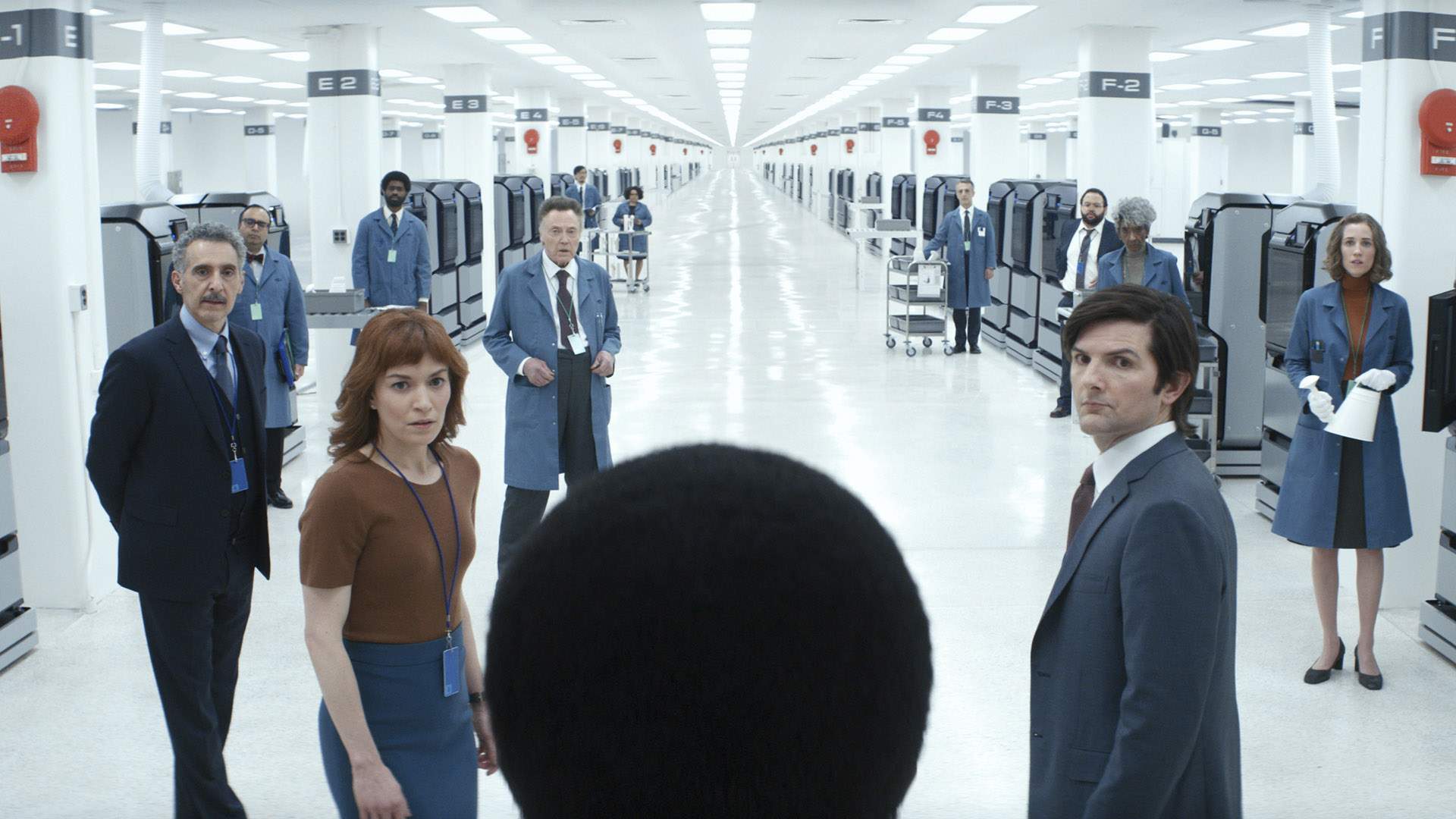
On What Initially Excited Walken About Severance — Especially with TV a Rarity, Outside of The Outlaws, on His Resume Since His Earliest Days as an Actor
"Well, being with John Turturro and Ben Stiller. The script — you could see that it was a good part. Interesting, quite original, different. Also a different kind of part for me to play, the romantic interest, especially at my age.
Also the fact that he's a decent, good person. I don't play a lot of those.
Yeah, it was a lot to like."

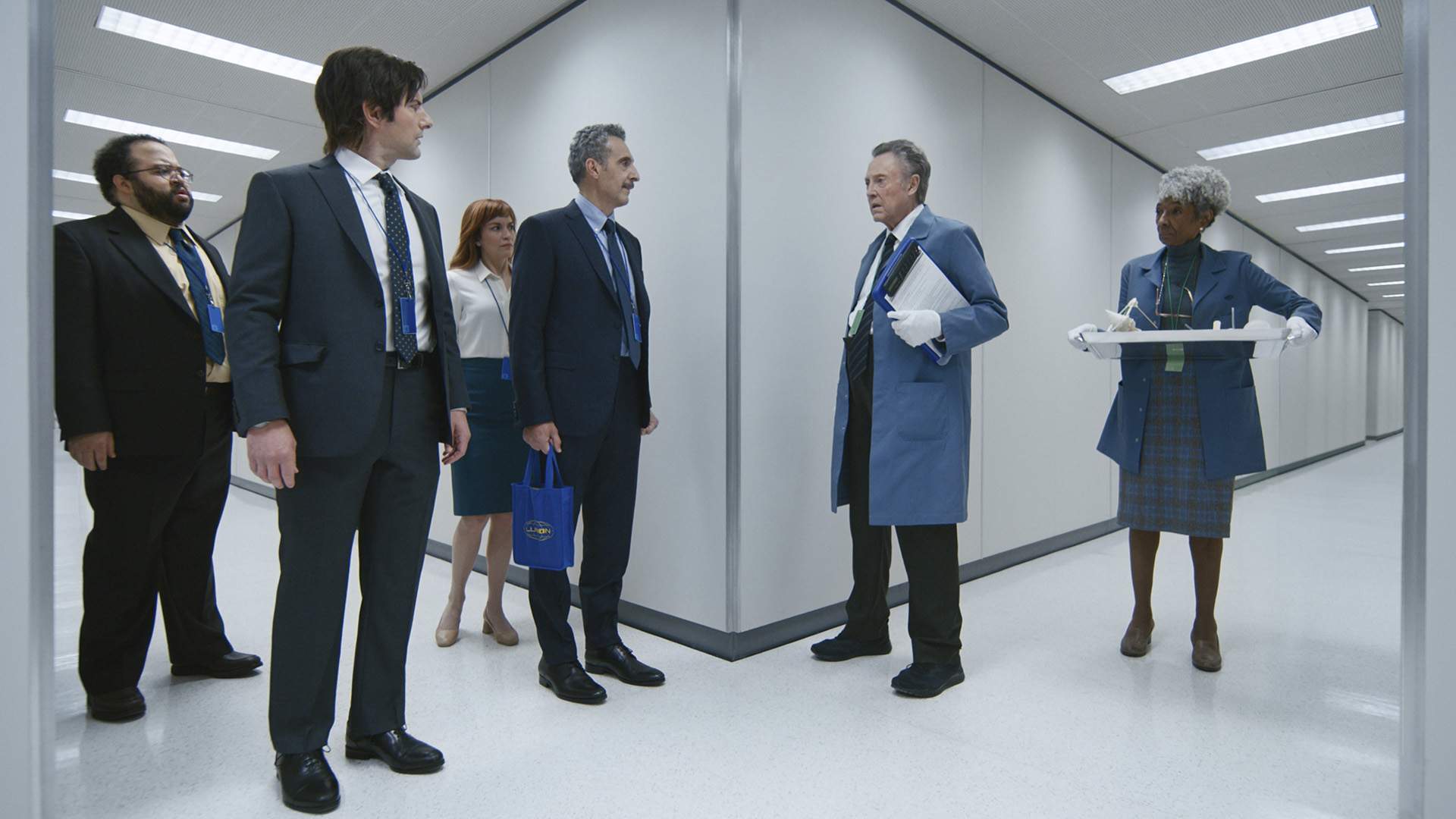
On Severance's Premise, the Similar Duality That Comes with Being an Actor, and the Idea in Burt and Irving's Storyline That Perhaps Love Transcends All
"The premise is not something I ever thought about. And of course, being an actor, there's that dual-personality thing anyway. You are who you are, and then you're the guy who you are when you put the costume on. So that's kind of built in.
I thought it was very interesting. I thought it was a little bit spooky and scary, not knowing — a little bit vampirish, almost, that you have this life at work and you have this life at home. It's sort of like you're alive at night and you're in a box somewhere during the day. Who knows?
I didn't think about that part much, but I do think that that idea of love transcends all is probably true, and it certainly was useful in this case."

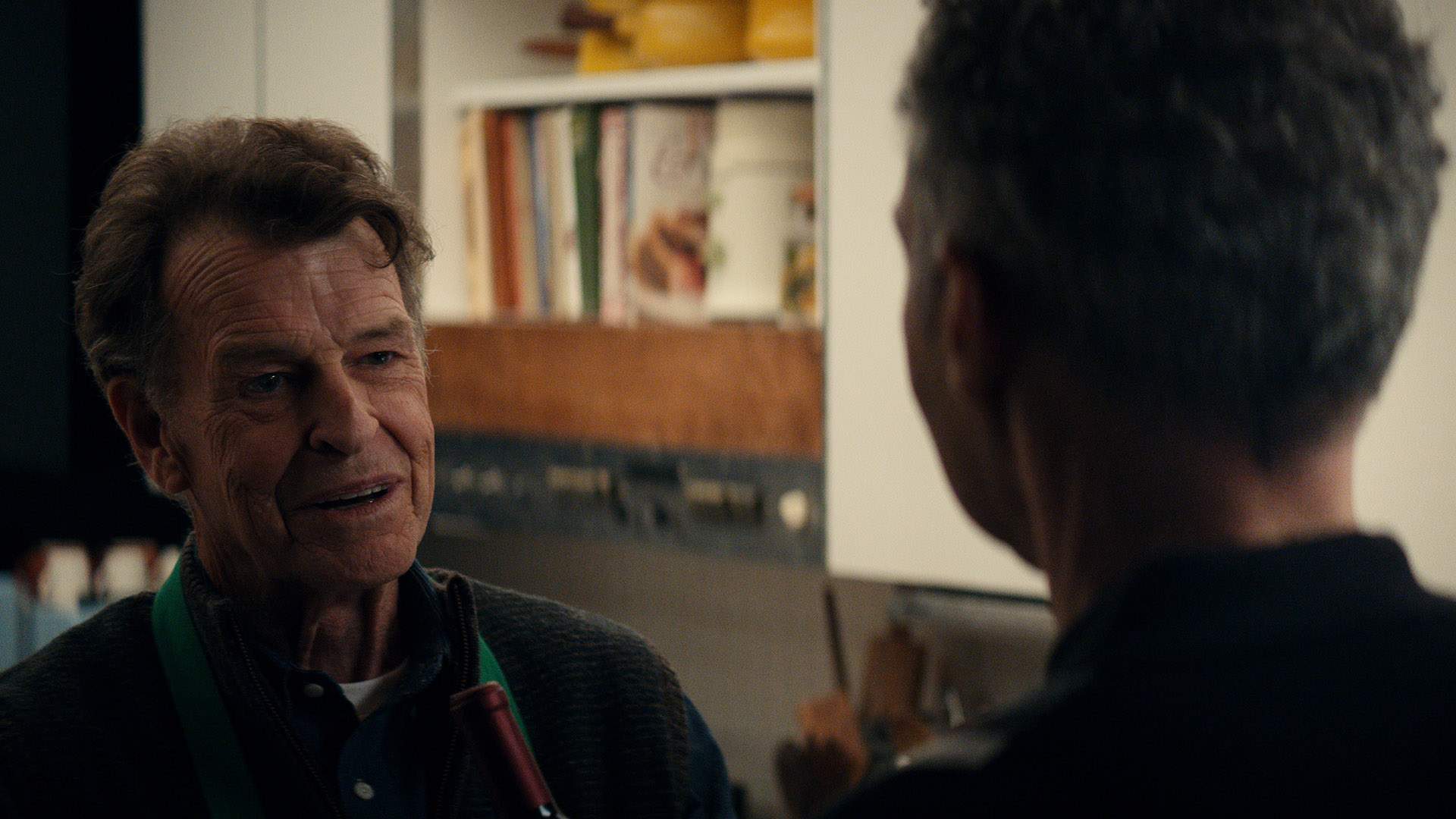
On Meeting the Outie Version of Burt, and Stepping Into His Life, Expanding Beyond Burt's Time at Lumon
"It was very interesting to have this new life, to see my house, to see the clothing that I wear, to see Fields, my husband — all of that was interesting.
But I have to say that I have not seen the second season. You have, I guess. So I really, I can't really talk about it much — I don't know."

On Whether Anything Else in Walken's Career Helped, Including Indirectly, with Playing Both Versions of Burt — Even Though This is Quite a Different Type of Character for Him
"No, I haven't. I played, in a movie called The Dead Zone, I played a guy who has an accident and he kind of gets disconnected from his own mind because of being hurt in an accident. And it gives him certain qualities that he never had before.
So I suppose that might be the closest I ever came."

On Knowing That Audiences Always Bring Their Knowledge of an Actor, and the Baggage From Their Past Parts, to Any New Performance
"Oh, absolutely. I think that when people talk about what it is to be an actor, to talk about, even think about what you doing when you're an actor, it doesn't get mentioned much, what you just did. But whenever you show up, you're not only showing up as the person you're playing, you're showing up as all the things that they've seen you in before. And things that they've heard about you, seeing things that maybe they've read in an interview or something that they've seen, like what we're doing right now.
This interview that we're doing informs any part I might do in the future. It's all part of it. And as you use the word 'baggage', that can be good baggage and bad baggage. But it's always there.
I don't think that anybody looks at an actor, particularly one who's been around a long time, and sees them as the word 'virgin'. I mean, there's no seeing things for the first time again, it's always with all that stuff."

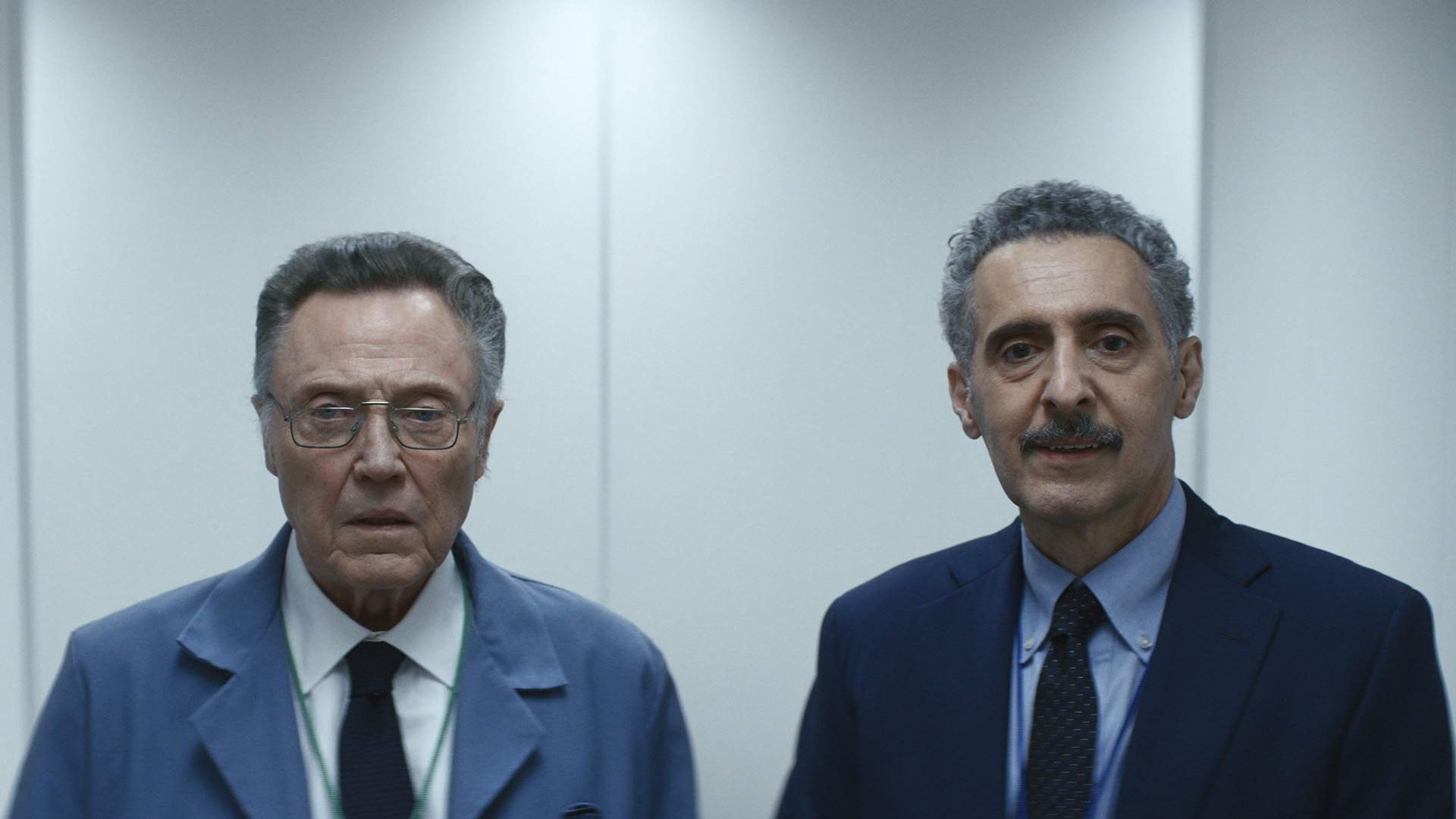
On How Working with John Turturro for Years, Including in Films That He's Written and Directed, Helped with Building Burt and Irving's Chemistry
"Oh, very much. The fact that John and I know each other so well, I think shows up on the screen. You can tell — you know, you can't tell what they think of each other, but you can tell that they know each other. And that's very valuable in a case like this.
Like how you see two people and you know they're married. I mean, they may not get along, but you know they're married.
And in the case of John, I love John. He's my old pal."

On How Walken's Way with Monologues Across His Career Stems From His Early Shakespearean Days
"Early in my career, for some reason I got to play a lot of big parts in Shakespeare. And I had absolutely no background or qualification to do it. I just got these parts.
I played Hamlet twice. I played Romeo twice. I played Iago. I played all these parts. I was part of a Shakespeare company and, as a result, I had to learn and perform these enormous monologues.
Iago, I think, is the longest part in Shakespeare. You'd think it was something else.
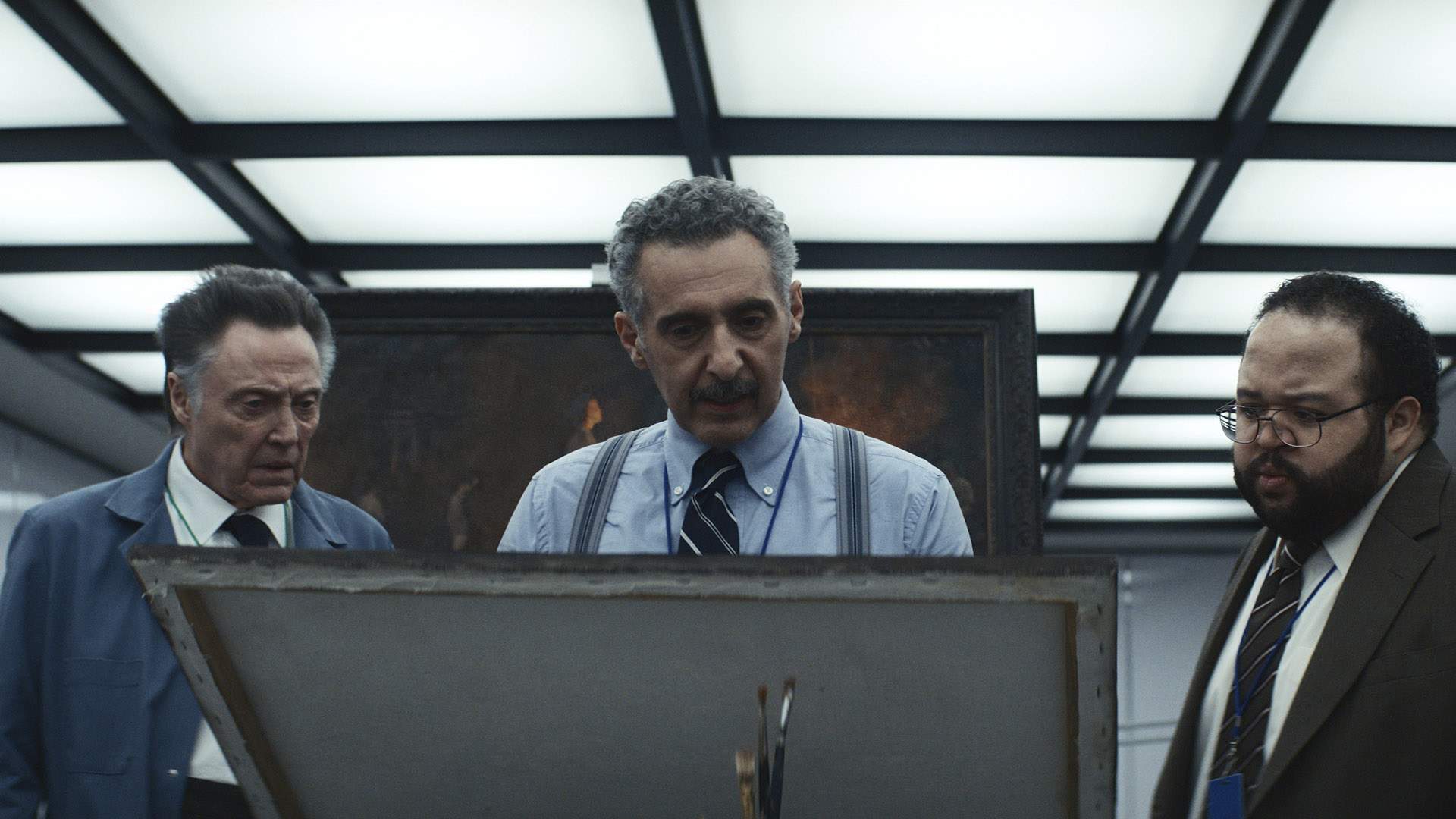
So I spent the early part of my career learning these big speeches. Now, I was never very good in these parts, but I did learn the lines and said them in front of a live audience to varying degrees of success. But it taught me how to do that.
I think that's why I get all those big speeches."

Severance streams via Apple TV+. Read our review of season one.
